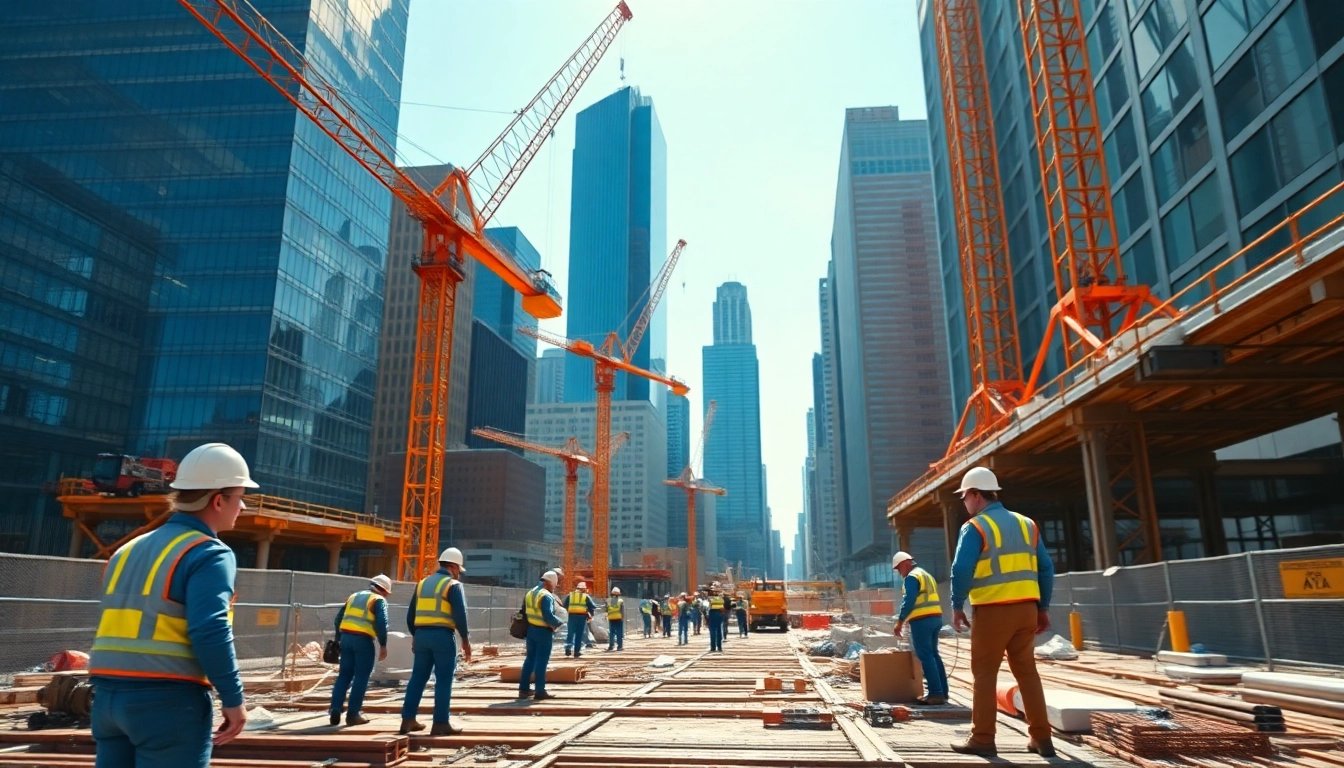
Understanding the Role of a New York City Commercial General Contractor
The landscape of New York City is constantly evolving, making the role of a New York City Commercial General Contractor more crucial than ever. These professionals are central to the planning, execution, and completion of commercial construction projects. Their expertise not only impacts the structural integrity of a building but also influences its functionality and alignment with industry standards and regulations.
Key Responsibilities
A New York City Commercial General Contractor oversees various aspects of construction projects, including:
- Project Management: Taking charge of project timelines, budgets, and coordination with subcontractors and suppliers to ensure smooth operation.
- Regulatory Compliance: Ensuring that all construction activities adhere to local laws and building codes, which is critical in a city with stringent regulations.
- Quality Control: Monitoring construction quality, implementing safety standards, and managing inspections to ensure the project meets the required specifications.
- Client Communication: Acting as the primary point of contact between clients and various stakeholders, ensuring that everyone is on the same page regarding project goals and progress.
- Resource Allocation: Managing labor, tools, and materials, and making necessary adjustments to maintain efficiency throughout the project lifecycle.
Essential Skills and Qualifications
To excel as a New York City Commercial General Contractor, professionals need a robust skill set that includes:
- Technical Knowledge: A solid understanding of construction methods, materials, and industry best practices.
- Project Management Expertise: Proficiency in project management tools and techniques is essential for tracking progress and managing budgets.
- Communication Skills: The ability to convey complex information clearly and effectively is vital in dealing with clients, stakeholders, and crews.
- Problem-Solving Skills: The capacity to anticipate issues and provide solutions quickly is essential in the fast-paced construction environment of NYC.
- Licensing and Certification: Required licenses, such as a general contractor’s license, alongside certifications in construction management or safety, are often necessary.
Importance in the Construction Industry
The role of a New York City Commercial General Contractor is pivotal not only for the success of individual projects but also for the broader construction industry. Their contributions help maintain high industry standards, lead to innovation in construction techniques, and drive sustainable practices. Moreover, they play an essential role in economic development by undertaking projects that provide jobs and boost local economies.
Choosing the Right New York City Commercial General Contractor
Selecting the right contractor is a fundamental step in ensuring your construction project is a success. There are several factors to consider when making this choice.
What to Look for in a Contractor
When searching for a New York City Commercial General Contractor, keep these criteria in mind:
- Experience: Look for contractors with a proven track record in managing projects similar to yours.
- Reputation: Online reviews, testimonials, and referrals can provide insight into a contractor’s reliability and quality of work.
- Financial Stability: Ensure that the contractor has the financial muscle to complete the project without interruption.
- Good Communication: An effective contractor should be responsive and able to clearly explain their processes and expectations.
Questions to Ask During the Selection Process
As part of your evaluation process, consider asking potential contractors the following questions:
- What is your estimated timeline for completion, and how do you manage delays?
- Can you provide a detailed project estimate, including labor, materials, and additional costs?
- How do you ensure compliance with local regulations and safety standards?
- Who will be my main point of contact throughout the project?
Red Flags to Avoid
Be wary of these red flags that could indicate a contractor is not the right fit:
- Lack of Transparency: A contractor unwilling to share previous work examples or references may be hiding something.
- Unclear Contracts: Contracts that are vague or lack detail should be approached with caution.
- Poor Communication: A contractor who is slow to respond or dismissive of your concerns may not prioritize your project.
Best Practices for Project Management
Effective management is vital for the success of any construction project. Here are best practices that New York City Commercial General Contractors can implement:
Effective Communication Strategies
Communication is key in any project. Contractors should actively foster a culture of open communication among teams, clients, and subcontractors to keep everyone informed and engaged throughout the project. Regular updates and status meetings help ensure that all stakeholders are aligned with the project’s goals and timelines.
Budgeting and Financial Management
Effective budgeting involves meticulous planning and ongoing financial management throughout the project. A good contractor ensures that funds are allocated appropriately, and any changes in project scope are communicated to clients with associated costs. Utilizing budgeting software can help keep track of expenses and avoid overspending.
Timeline Development and Adherence
Developing a realistic project timeline that includes milestones for various stages is crucial. It allows for better tracking of progress and helps identify potential bottlenecks. Sticking to this timeline will often require adjustments and flexibility, as unforeseen issues arise. Regularly reviewing the timeline and adapting as necessary can keep the project on track.
Challenges Faced by New York City Commercial General Contractors
While the role is rewarding, it comes with its challenges. Understanding these challenges is crucial for both contractors and clients in ensuring successful projects.
Compliance with Local Regulations
New York City is known for its strict regulations regarding building codes and construction practices. Navigating this complex regulatory environment requires diligence and expertise from contractors, who must stay informed about local laws and codes to ensure that projects meet all necessary compliance standards.
Managing Labor and Resources Effectively
Finding and retaining skilled labor in a competitive market can be a significant challenge. Contractors must develop strong relationships with skilled laborers and ensure that their teams are cohesive and well-trained. Effective resource management involves not only staffing but also ensuring that materials arrive on time and are sufficient for the predicted scope of work.
Adapting to Market Trends and Demands
The construction landscape is continually evolving, influenced by trends in technology, sustainability, and design. The ability to adapt to these shifts is essential. Contractors must be proactive in researching and implementing new technologies and processes that can improve efficiency and project outcomes.
Case Studies of Successful Projects
Examining successful construction projects can provide valuable insights into effective practices and strategies employed by contractors.
Highlighting Notable Commercial Projects
Some standout projects in New York City demonstrate the importance of innovative approaches and solid contractor-client relationships. These projects often utilize cutting-edge technology and materials while embodying the cultural and aesthetic ethos of their surroundings.
Lessons Learned from Real-World Scenarios
Every project offers lessons, whether through successes or challenges encountered along the way. Contractors who document these experiences, including issues faced, solutions implemented, and outcomes achieved, can better prepare for future projects and improve their approach to project management.
Future Outlook for New York City Commercial Construction
The commercial construction landscape in New York City is poised for continued growth, driven by demand for innovative design, green building practices, and technological advancements. New York City Commercial General Contractors who stay informed about future trends and adapt their strategies accordingly will be well-positioned for success in this dynamic environment.





